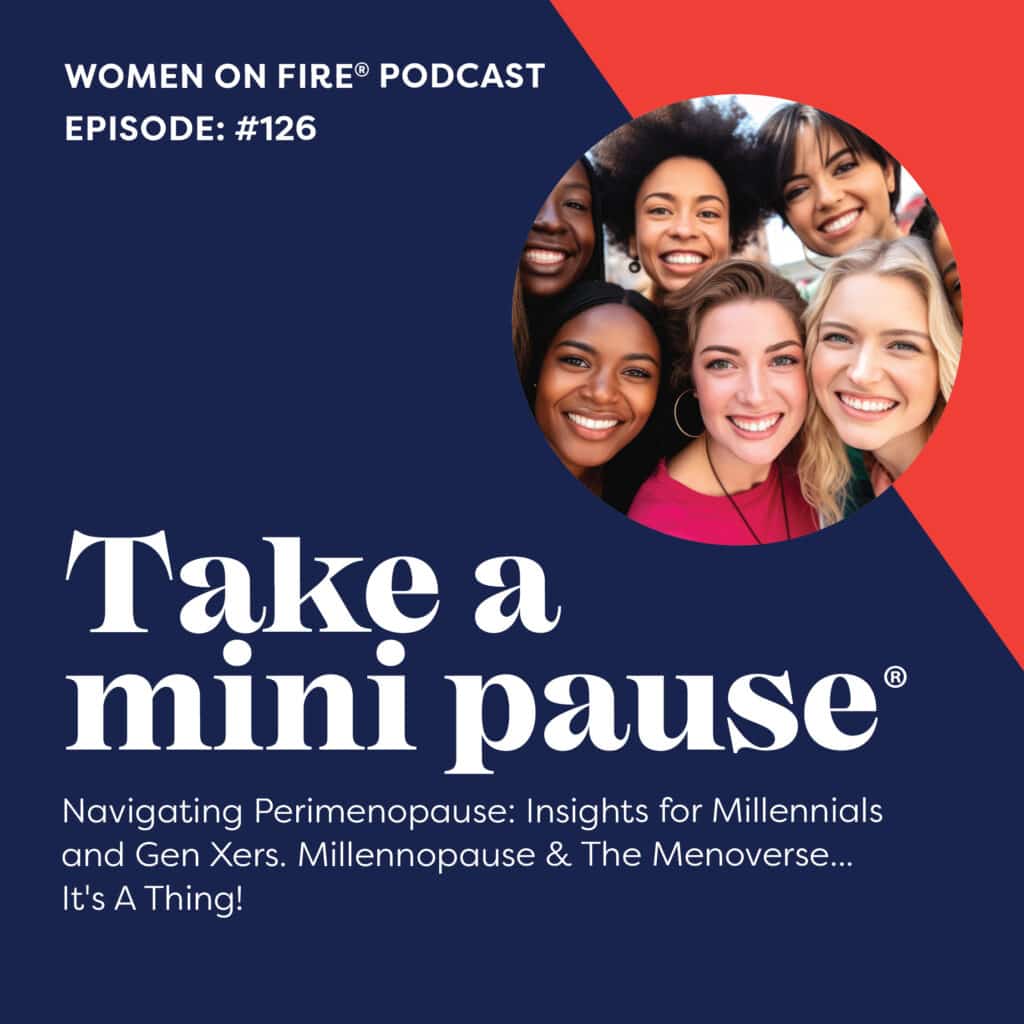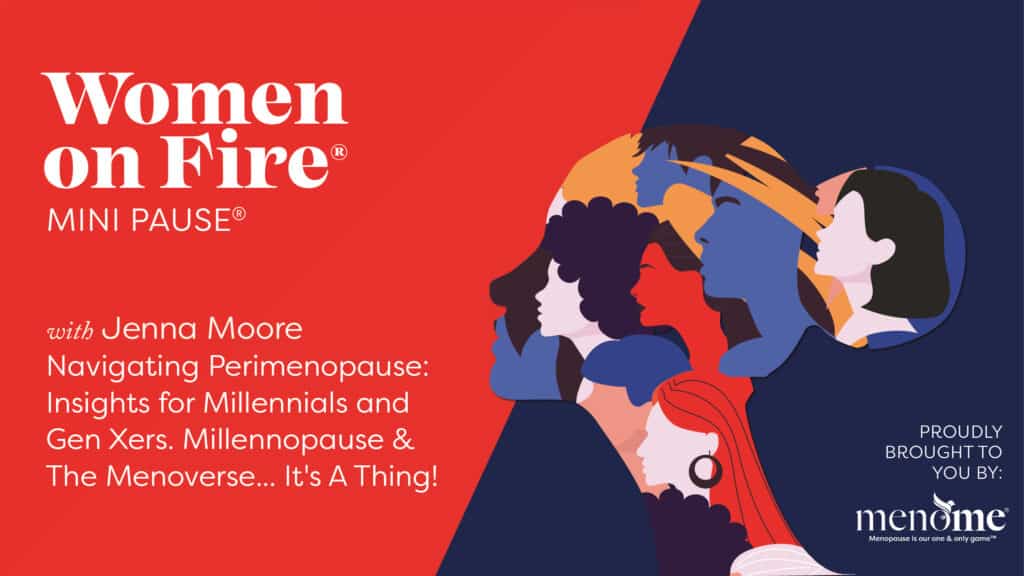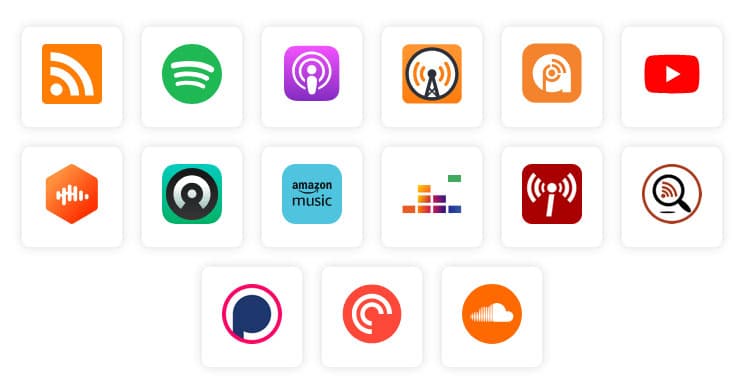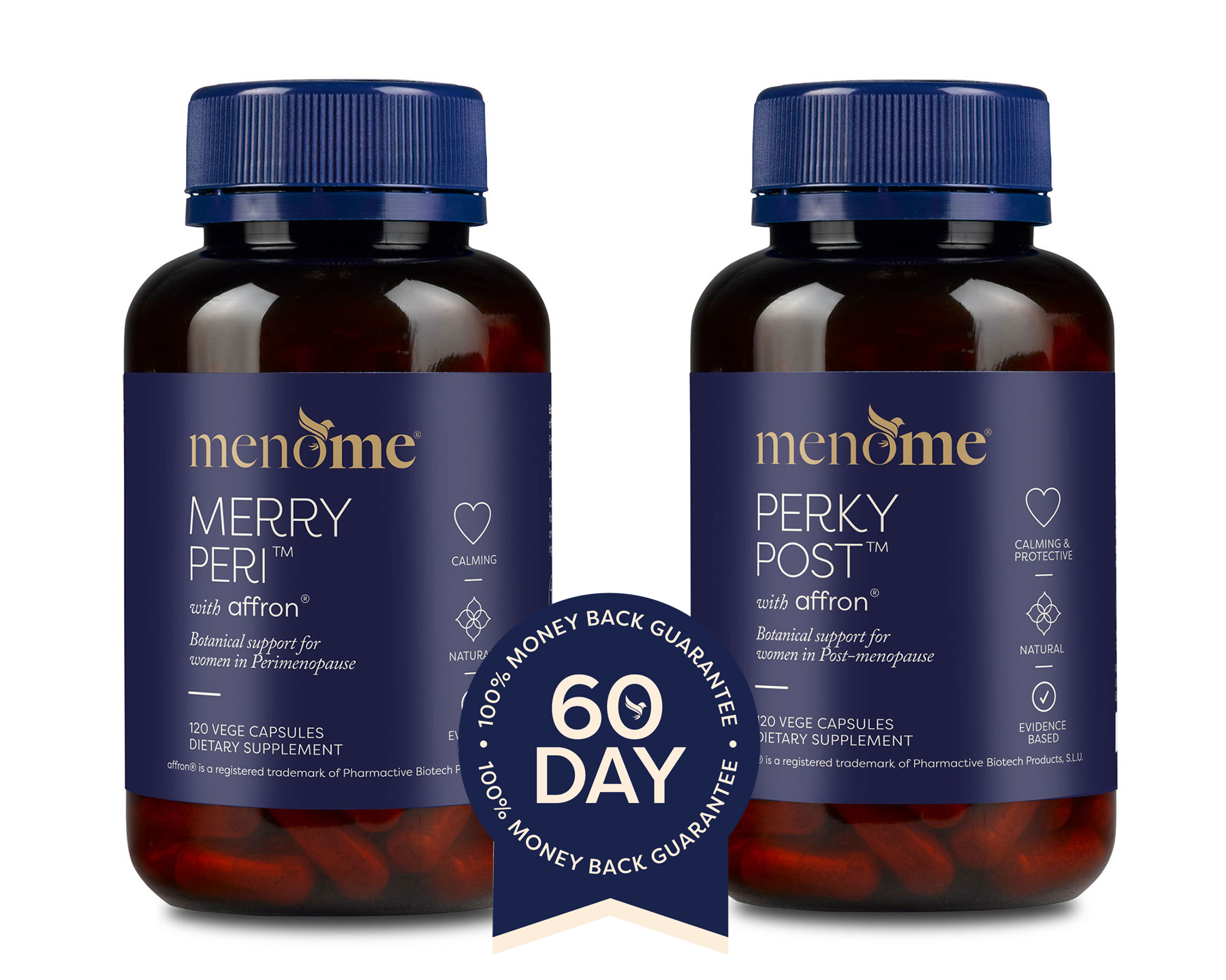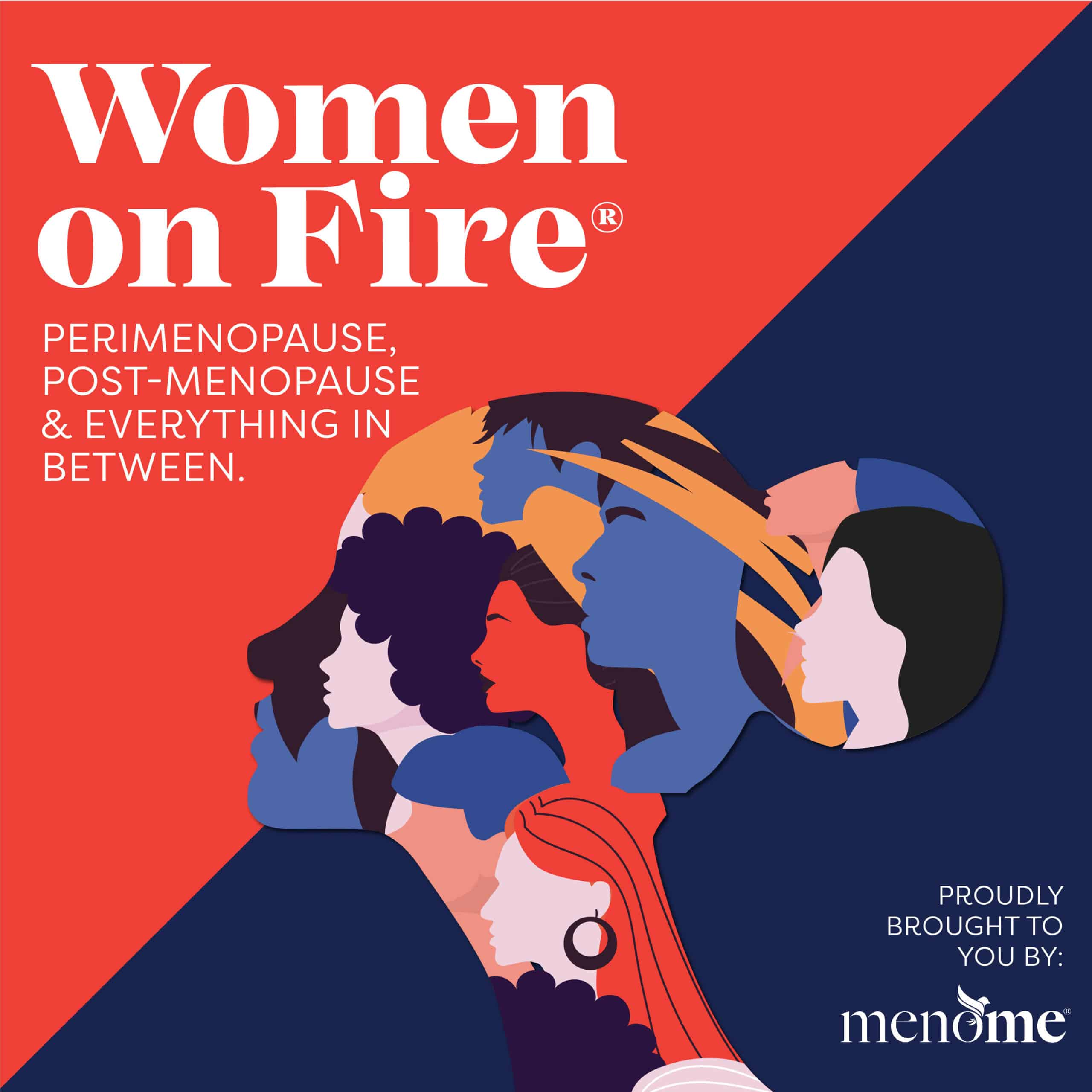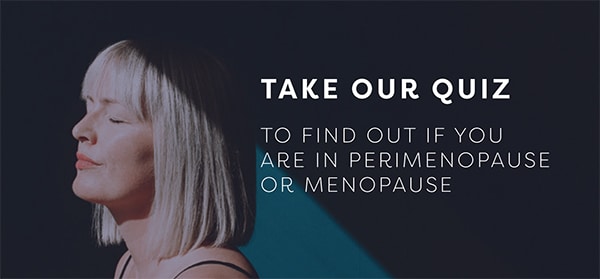Podcast Episode
Takeaways
- The Menoverse is the world of menopause which is super-relevant for all women from their mid-30s.
- The Menoverse and Millennopause are real. So, let’s get educated.
- Peri aka perimenopause begins earlier than you might think and it’s not a one-and-done overnight experience.
- The key to a smoother ride is understanding the hormonal changes and symptoms associated with peri.
In this episode, we talk about:
- 00:00 Introduction
- 01:03 Menoverse, Millennopause and Peri
- 02:03 Who Are Millennials? And Gen Xers?
- 04:02 Changes Can Your Begin In Your 30s
- 05:11 Peri Symptoms
- 06:03 Not Just About Your Ovaries
- 06:20 Peri: Depression & Anxiety
- 06:43 Quick Fire Knowledge Nuggets
- 10:00 You’re So Lucky!
Episode Resources:
- Episode #104 How Will I Know I’m In Perimenopause?
- Merry Peri®
- Webinar – How Gut Health Impacts Your Menopause Journey
- Happy Go Tummy®
- Millennials Are Rebranding Menopause Unherd
- Hark, The Millennial Death Wail New York Times (Paywall)
Video Version
Transcript
Welcome to the Menoverse! If you’re wondering what the heck that is, I get it. But I’m guessing that if you’re here listening or watching Women on Fire®, peri, (meaning perimenopause), menopause, postmenopause, or midlife, is something that is of interest to you.
Ch-ch-changes
It’s a world that’s gone through a seismic shift over the last 10 years or so. I’ve actually watched it and it’s been pulled out from under the rug or probably dragged out from under the rug and now it even has its very own buzzwords which we’re going to talk about today and they include Menoverse, Millennopause and I’d throw Peri in there too. Because peri seems to be the norm for the word perimenopause now, and this is the Millennopause Era. So, I’m hoping if you’re here, this is something that you want to know about because I’d love to shed some light on that for you.
And certainly, if you are a millennial, you want and probably need to know more as well. Menoverse refers to the millennopause space, be that anywhere, in media, social media, books, anything. It’s talk and discussion about menopause. And Millennopause refers to the millennials that are beginning to enter peri.
Who are millennials?
If you don’t know millennials are the generation born between 1981 and 1996, and the time of September 11, the Great Recession, the rise and rise of the internet, COVID -19. All of these things have been big milestones in millennial’s lives. And right now in 2024, millennials are aged 28 to 43 years old.
If you’re wondering, the generation before is Gen X and they’re currently in 2024, 44 to 59 years old, so some of those will be in that perimenopause stage as well.
There are 1 .8 billion millennials on the planet and if you’re an older millennial chances are you are entering peri or about to enter peri. And like I said before, if you’re a younger GenXer, (44/45), you’re there too.
The first millennials hit 40 back in 2021, and I touched on it then, but there wasn’t this huge Mexican wave in the menoverse that there is now. It’s a really hot topic conversation, there’s a lot of stuff going on in the menoverse.
Mid-30s? Listen up
If you’re listening to this and you’re there or you’re an up-and-coming millennial or you know someone who is, you should be aware…and this is not coming out as loudly at the moment… But you should be aware that changes can start happening as early as your mid 30s. Not in a big way, more subtle but they can start beginning then and to be clear, I’m talking about average natural menopause here. I’m not talking about premature or surgical menopause or anything like that because they are their own situations. However, if you’re a millennial or that younger end of the Gen X’s, you could be experiencing perimenopause woes. Not everybody does, but about 80% of us will.
These could be things like sleep disruption, anxiety, changes to your periods, they tend to be the first sign. And if you’re experiencing those or starting to, it’s not surprising. What is surprising is that it could have been going on for a few years if you’re around that 40 mark.
It won’t happen overnight
So the message here is that peri is not a one-and-done overnight shift. It’s actually a long, quite a long gradual process, an average of four years but can go on for over a decade.
You’ll hear lots of different figures bandied about, but those are around the ballpark and it’s what most menopause societies say, who are in the business of menopause.
But it’s also not just about your fertility or your ovaries, which has always been the general consensus, although that is something to be aware of if you haven’t had children and you would like to, it’s something to think about.
There has been a shift lately and we now know that a lot of symptoms may begin in the brain or certainly stem from the brain. And if you’re feeling low, depressed or anxious more than you normally might, then peri could be one of the reasons why.
Quick tips
So let me just share a few stats with you because this is meant to be a broad overview to give you a slight education.
- So, peri is the prelude to the big ‘M’ or menopause which is the end of our fertile years.
Peri is also the time when most signs and symptoms occur which is why most people don’t realize what’s happening when they’re younger. The hormonal changes as I said can begin as early as your mid -30s and that’s when progesterone drops and that’s why it can be more difficult to get pregnant.
- Now there are a whole host of hormones included in menopause but estrogen and progesterone are major players.
- Progesterone is a hormone that helps us fall pregnant and it helps us hold a pregnancy.
But the other thing is it’s a very calming hormone, sometimes called nature’s valium. But it also helps us sleep, it also burns fat, it also supports our thyroid and fat. Our thyroid loves progesterone, so hyperactive thyroid or underactive thyroid can be quite common in perimenopause.
- It’s a really good time to get a full panel thyroid check, not just TSH, but a full panel. It’s also important to realize that this might be a reason why you’re feeling more anxious, you’re more prone to temper tantrums, or your confidence has taken a bit of a hit… it can be due to peri.
- So progesterone is the first hormone to drop usually and it does that in quite a linear fashion.
Estrogen tends to decline a bit later, a fair bit later, but it doesn’t do it as smoothly or as linearly as progesterone does. It tends to go a bit like a roller coaster, it goes high and low and peaks and troughs, which can lead to quite chaotic menopause symptoms or perimenopause symptoms.
- If you feel like you’re going crazy, you probably aren’t because a lot of us, (they didn’t have the knowledge that’s around now), did find ourselves in that situation.
Second puberty
As I say, that’s just a very quick look at what can go on over a few years. And I wanted you to know that it’s not an overnight thing, it’s quite a long progression. If you recall, puberty was quite chaotic too, and that took a while as well. And so that’s one reason why perimenopause and menopause are called our second puberty. It makes sense because puberty is the beginning of our fertile years and menopause is the end of it. So it makes sense that it’s called second puberty because it’s still that hormonal major, major, major shifts in our sex hormones basically, but a lot of our hormones, other hormones as well.
You’re lucky!
If you’re a millennial and you are here, you’re really lucky because those first that went before you (like 10 or more years before you), we weren’t lucky enough to be one of those women that sail through, we quite often wondered what the heck had hit us.
And that can be quite destructive to careers and relationships and things. But you know, historically studies were, scientific studies, health studies, were done on men because apparently women were deemed too complex. It was only in 1992 in America that it was deemed that women must be part of these studies, so, we’re in pretty early days on collecting data.
Halle Berry, Drew Barrymore, Oprah & Michelle Obama
And that’s why loads of Gen Xs and baby boomers, including celebs like Halle Berry and Drew Barrymore and Oprah and Michelle Obama, are standing up and shouting and shining a very bright cultural spotlight on this so that your generation doesn’t have to be blindsided by it, like a lot of us were. And it’s wonderful to see, and I witnessed this happening in breast cancer awareness too, that women are standing up to be counted and they are blowing the lid right off this so that there is much more knowledge and awareness out there.
There are some brilliant, brilliant narratives out there, which are included in the show notes for you in case you’re interested in having a look at those (see episode resources above). I’ll also link a couple of other episodes in the show notes for you, including one that goes more into peri and into the signs and symptoms and what you can expect, because that’s really, really important knowledge. The more you know as you head into peri and menopause, the better off you’ll be.
Be prepared
And in fact, the healthier and fitter you are in pre-peri, it looks like the less turbulent and the more smoother those waters might be on that journey for you as well. So that’s really important to know too. But of course, you know, this is women’s health, all about the female body, so there are exceptions to every rule, but that does tend to be the general consensus.
Good news
On the plus side, those baby boomers and Gen Xers who are standing up and loudly talking, they report feeling happier and more comfortable in their skin now too. And they’re out there, they’re running countries, they are winning awards, they are smashing through the glass ceiling. Indeed, they’re becoming huge social media influencers and they’re saying, ‘come on life, I’m gonna grab you by the hands’. And I know they would join me in saying, that we would get a real buzz out of knowing that you guys have this knowledge and that you’re going in forewarned so you can take control of your own body and your own journey.
Thank you
So thank you for being here with me today and please share this with anyone you think might need it or might benefit from it that you know and that you love and if you have any questions or want to be headed in the right direction for more information on that, please don’t hesitate to get in touch.
And welcome to this club of incredible, incredible, incredible females!
Support
In closing, I want to share something with you. Women on Fire®‘s sponsor, MenoMe® puts a lot of love and care into formulating natural evidence-based support supplements for you. So I wanted to tell you about Merry Peri®.
It contains something called affron®, a type of saffron, fenugreek and sage. Together they support a lot of the moods, hot flushes, sleep disruption, things like that. So it’s a really, really good idea to pull together a toolkit of support on this journey. So to add Merry Peri® to it would be great.
I also wanted to mention gut health, because we now know that your gut health is very, very much part of this journey. The signs and symptoms of peri can cross over with an unhealthy gut. The estrogen actually has its very own microbiome family in there. (Check out the Webinar – How Gut Health Impacts Your Menopause Journey.)
MenoMe® also has Happy Go Tummy® to help you with your gut health and that contains amazing ingredients as well. It’s a synbiotic, which means it’s a combination of prebiotic and probiotic and you need both of those for best-ever gut health.
